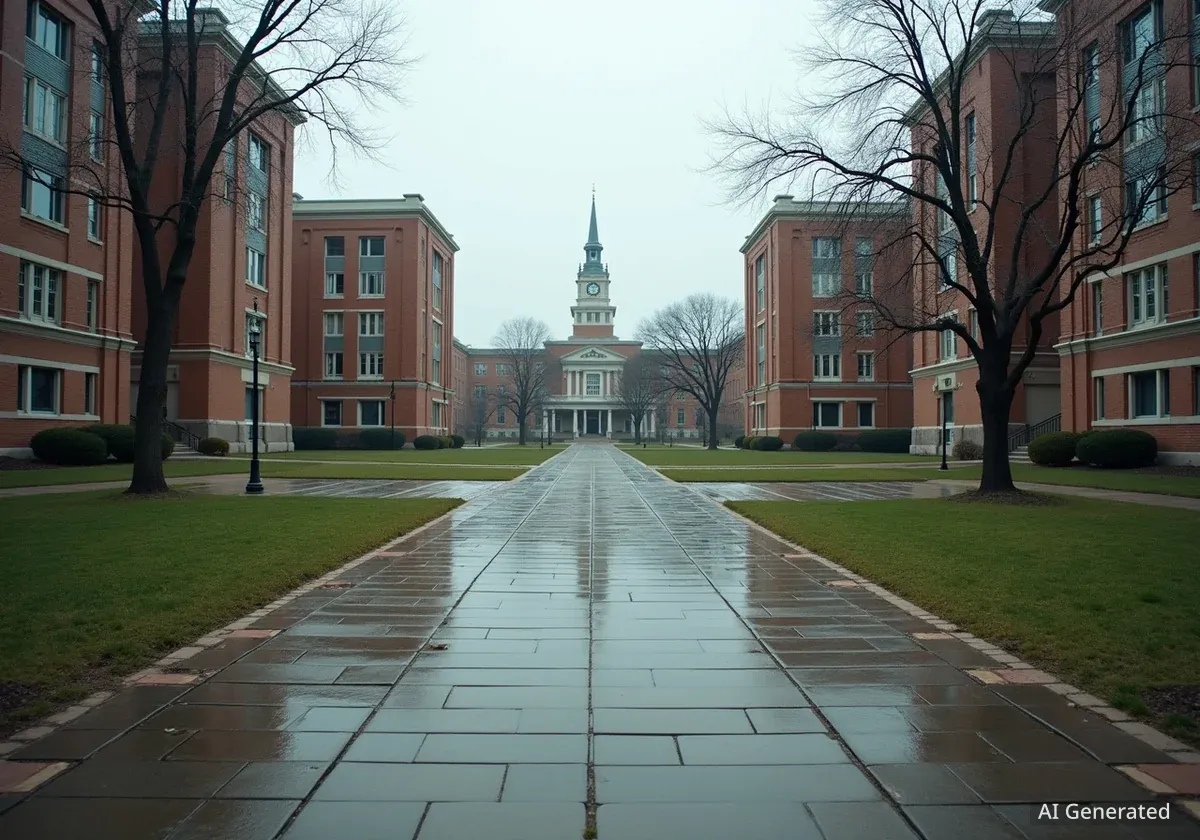The University of North Carolina Wilmington (UNCW) canceled all classes on Friday following a tense, multi-hour lockdown triggered by a false report of a gunman on campus. In a statement, Chancellor Aswani Volety addressed the university community, providing details about the incident and the institutional response.
Key Takeaways
- UNCW was placed on lockdown for several hours on Thursday due to an unconfirmed report of an armed individual.
- Police later confirmed the threat was a false alarm and the campus was secure.
- As a result of the disruption, the university canceled all classes for the following Friday.
- Chancellor Aswani Volety released a video statement detailing his experience sheltering in place and outlining the university's response.
Campus Lockdown Following Unconfirmed Threat
On Thursday, September 18, the UNCW campus was plunged into a state of high alert. An unconfirmed report of a person with a gun circulating on campus prompted immediate action from university officials and law enforcement. The university initiated its emergency protocols, resulting in a campus-wide lockdown that lasted for several hours.
During the lockdown, students, faculty, and staff were instructed to shelter in place, lock doors, and await further instructions. The extensive police presence on campus conducted a thorough search of the grounds and buildings to verify the credibility of the threat. The situation remained fluid for a significant period, causing widespread anxiety across the university community.
After a comprehensive investigation, law enforcement officials determined that the report was a false alarm. They announced that there was no active threat and the campus was safe. Despite the resolution, the event had a significant impact on university operations and the well-being of its members.
The Reality of Campus Alerts
Modern universities employ sophisticated emergency notification systems to quickly disseminate information during potential threats. These systems often use multiple channels, including text messages, emails, and social media, to ensure rapid communication. While false alarms can be disruptive, they serve as critical tests of a campus's emergency preparedness and response capabilities.
Chancellor Volety Addresses the Community
The morning after the incident, UNCW Chancellor Aswani Volety released a video statement to provide clarity and reassurance to the campus community. He confirmed the sequence of events and expressed his gratitude for the cooperation of students and staff during the stressful period.
Chancellor Volety shared a personal account of his experience, noting that he sheltered in place alongside approximately 35 faculty members, staff, and students in the Bernie Center. This detail highlighted that the university's leadership was directly involved in the campus-wide safety protocol, experiencing the situation alongside the rest of the community.
"I want to thank our students, faculty, and staff for their cooperation and patience during a very challenging and uncertain situation. The safety of our campus is our highest priority, and we acted swiftly based on the information we had."
In his address, the Chancellor emphasized the university's commitment to safety and transparency. He acknowledged the fear and uncertainty caused by the lockdown and the subsequent decision to cancel classes, framing it as a necessary step to allow the community time to process the event.
Aftermath and University Response
Following the police declaration that the threat was unfounded, the immediate focus shifted to managing the aftermath. The university administration made the decision to cancel all classes on Friday. This measure was intended to provide students and faculty with a day to recover from the stressful ordeal and ensure a smooth return to normal campus activities the following week.
Impact of False Alarms
Studies on campus safety show that even false alarms can have a significant psychological impact on students and staff, leading to heightened anxiety. Canceling classes and providing access to counseling services are common institutional responses aimed at mitigating these effects and supporting community well-being.
The university also took steps to remind the community of available support services. Counseling centers and other mental health resources were highlighted for those who may have been affected by the incident. The communication from the university focused on reassurance and the reinforcement of safety protocols.
Review of Safety Procedures
Events like these, even when they turn out to be false alarms, often prompt a review of emergency procedures. University officials typically analyze the response to identify strengths and areas for improvement. This includes evaluating the speed and clarity of emergency communications, the effectiveness of lockdown procedures, and the coordination with local law enforcement agencies.
The incident at UNCW serves as a stark reminder of the security challenges facing educational institutions today. While the report was ultimately false, the rapid and coordinated response demonstrated the university's preparedness to handle a potential crisis. The focus now turns to supporting the community and reinforcing the safety measures that protect all who live, work, and learn on campus.





